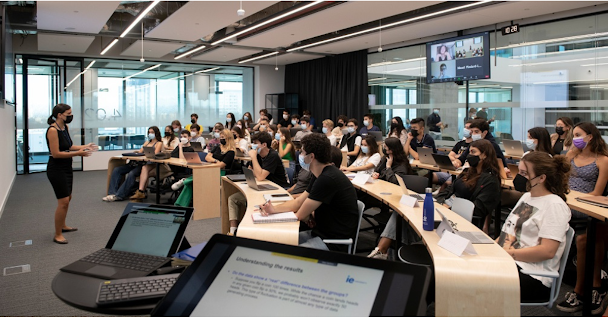A Guide to Pursuing BCom: Eligibility, Career Opportunities, and Job Prospects
A common undergraduate program that provides a variety of job options in business and finance is the bachelor of commerce (B.Com). Students who complete the three-year curriculum will have a solid foundation in accounting, finance, taxation, economics, and business management. For students interested in a job in accounting, taxation, banking, finance, or commerce, B.Com is a highly sought-after course. The B.Com. qualifying requirements, the admissions process, career options, and employment prospects for B.Com. graduates will all be covered in this blog.
Eligibility for BCom
Candidates must have received at least 50% in their higher secondary examination from an accredited board in order to be eligible for a BCom. Students from all academic disciplines, including science, business, and the arts, may apply for this course. In order to admit students to BCom general programs, many universities and colleges either administer entrance exams or conduct interviews. The Common Admission Test (CAT), the Management Aptitude Test (MAT), and other entrance exams may also be required of individuals who want to pursue an MBA after finishing a BCom general.
Career Opportunities after BCom
Because there is always a need for qualified individuals in the area, a career in commerce offers tremendous growth potential. Both domestically and overseas, job prospects exist for Bcom general graduates. Working as an accountant is one of the most popular career possibilities for B.Com graduates. Every business needs accountants to keep track of their financial transactions, calculate profits, and make sure tax regulations are followed. BCom general graduates who are knowledgeable in topics like Cost Accounting, Management Accounting, and Basic Accounting Principles might pursue a lucrative career as an accountant.
For BCom grads, there are many more employment options besides accounting. They can operate as auditors, business analysts, financial planners, investment bankers, tax consultants, financial analysts, and more. Graduates of the Bachelor of Commerce program have the choice to continue their education and seek further careers in the fields of cost and work accounting, company secretarial work, and chartered accounting.
Job Prospects after BCom
The job prospects for Bcom general graduates are promising. Many private and government banks hire fresh B.Com graduates for various roles such as financial analysts, loan officers, investment bankers, and more. B.Com graduates with knowledge of the Bcom syllabus can also apply for government jobs like bank jobs, UPSC exams, and other related fields. The public and private sectors offer ample job opportunities for B.Com graduates, with opportunities for growth and advancement in their careers.




The bachelor of commerce (B.Com) is a typical undergraduate program that offers a number of job opportunities in business and finance. Accounting, finance, taxation, economics, and business management are among the subjects covered in the three-year program. B.Com is a highly sought-after course for students interested in careers in accounting, taxation, banking, finance, or commerce. To be eligible for a B Com general, candidates must have received at least 50% in their upper secondary exams from an approved board. This course is open to students from various academic areas, including science, business, and the arts. Many universities and colleges either administer admission examinations or conduct interviews to admit students to BCom general programs. To know more please visit https://www.itmuniversity.org/undergraduate-bcom(hons).html
ReplyDelete